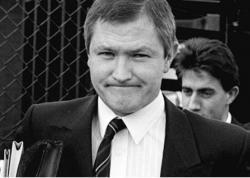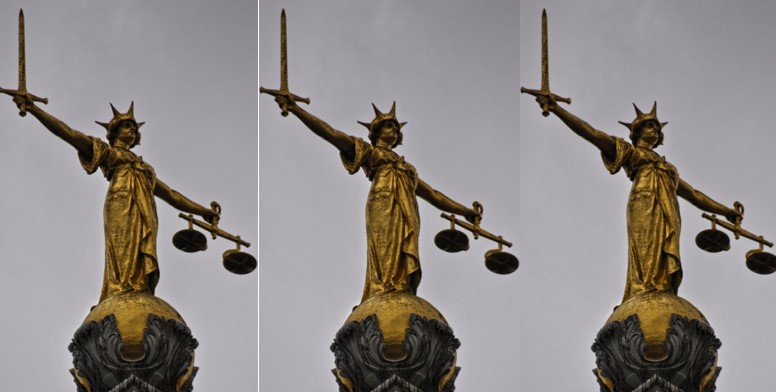By Harry Hutchinson, Labour Party member, Northern Ireland.
On the 12th of February 1989, Ken Barrett, a leading figure in the loyalist paramilitary Ulster Defence Association (UDA), along with an accomplice, smashed into the North Belfast home of criminal defence lawyer, Pat Finucane, and shot him fourteen times in front of his wife and children.
An RUC road check was set up to assist the gunmen in their escape from the murder scene, after Police Special Branch and the British MI5 service were informed of the pending attack.
Pat Finucane was a successful human rights lawyer who represented mostly Republicans, including IRA hunger striker Bobby Sands, but he had also represented Loyalists. He became a well-known figure in Northern Ireland and the British state were intent on silencing him.
Public Inquiry demanded
The Tory Northern Ireland Secretary of State, Brandon Lewis, this week ruled out a public inquiry into the Finucane killing, claiming “other review processes would have to run their course.” This is the latest attempt by the British to prevent any proper inquiry into the Finucane murder, a murder that highlights Britain’s involvement into state collusion with paramilitary organisations in Northern Ireland. Despite promises to the Irish Government that they would institute a public inquiry into his killing, the British have again reneged on that.
Findings from as far back as 1999 in the Stevens Report by the former, Commissioner of the Metropolitan Police, uncovered evidence of state collusion in the Finucane murder. In addition, in 2000, further evidence in the Finucane killing, uncovered by Canadian Judge Peter Cory, “disappeared.” In 2012, an inquiry by Sir Desmond de Silva uncovered extensive collusion between state collaborators and Loyalists and the admission was admitted in parliament by Tory Prime Minister David Cameron, who also issued an apology for it.
Paid informer confessed to killing
Pat Finucane’s killer was Ken Barrett, a paid informer of Special Branch, who confessed to Finucane’s murder to the RUC. However, the tape of his confession “went missing”, only to resurface again after a Panorama documentary in which Barrett again confessed his involvement in the murder. Barrett was handed a 22-year sentence in 2003, but was released in 2006. Brian Nelson, a member of Force Research Unit, a covert military unit of the British Army, claimed that he alerted his handlers of the planned Finucane killing. William Stobie, a quartermaster in the UDA, was arrested for supplying the weapons that were used in the murder, after evidence emerged from the Stevens inquiry. However, Stobie’s trial collapsed after he claimed he had informed Special Branch of the planned attack.
Solid evidence of state collusion
Despite the European Convention on Human rights reporting “solid evidence” of state collusion with paramilitaries in Northern Ireland, the British Government blocks all attempts to carry out a proper public inquiry into the involvement of the state with paramilitaries throughout all the years of the troubles in the North.
Bodies like the Historical Inquiries Team, set up to look into over three thousand unsolved murders, have been stalled due to budget cuts. Britain’s involvement in collusion with both Loyalist and Republican paramilitaries stretches back to the 1970s. There was involvement, both in what they knew and what they directly instigated in terms of murders and bombings throughout the duration of the troubles. This is what they want kept hidden from the public, because were their true role revealed, it might emerge that British state forces prolonged the duration of the ‘Troubles’ that left a deep scar on Northern Irish society and caused more than three thousand deaths.
December 3, 2020



